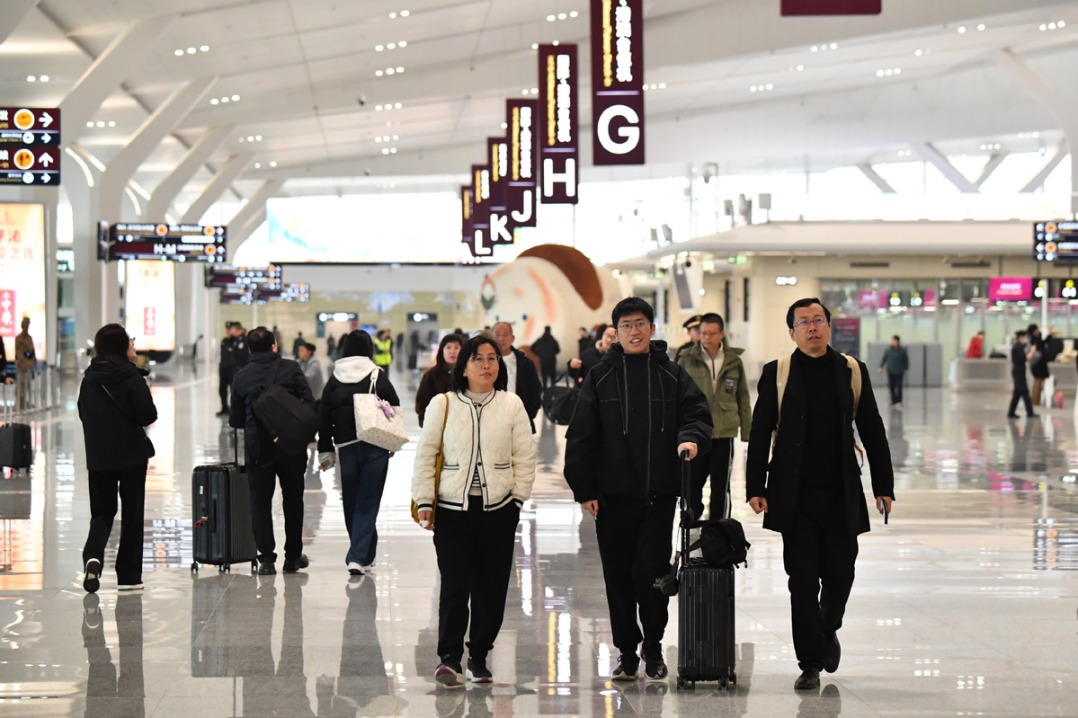More steps taken to protect rights of delivery workers


Major food delivery platforms in China announced recently that they will offer social insurance benefits for their delivery riders, which both riders and experts believe will better protect the rights of people working in the industry.
JD, a Chinese e-commerce platform that launched its food delivery service in February, announced on Wednesday it would gradually provide social insurance plus a housing provident fund for full-time delivery riders, and accident and health insurance for part-time riders starting from March 1.
Before expanding into food delivery, JD had already been providing social insurance for its express deliverymen.
On the same day, Meituan, another prominent on-demand service platform, made a similar announcement, revealing plans to provide social insurance for its full-time and stable delivery riders starting in the second quarter of 2025.
"To actively foster harmonious labor relations, Meituan is ensuring the rights and interests of our delivery workers and advancing the implementation of social insurance," the company said on its official WeChat public platform.
On Thursday, Ele.me, another food delivery giant in China, stated that it has been providing social insurance for delivery workers in selected cities since February 2023. The company also highlighted its ongoing efforts to gradually increase both the amount and coverage of special subsidies to stable part-time delivery riders.
"I am glad to hear this. Social insurance offers security for my job. Although a portion of my salary will be deducted for social insurance, the job feels more stable," said Wang, 49, who asked to be identified by his surname, a Meituan delivery rider working in Beijing.
Lu, a 40-year-old delivery rider who asked to be identified by his surname, works for multiple platforms including JD and Meituan. "I don't have an exclusive employment relationship with any platform, so I am not eligible for their social insurance policy," Lu said.
"My social insurance has been suspended for years since I started working as a delivery rider," he added. While acknowledging the lack of stable social insurance, Lu said that working flexibly across multiple platforms allows him to earn a bit more.
In China, social insurance typically includes pensions, medical insurance, unemployment insurance, occupational injury insurance and maternity insurance. The goal is to provide financial support to workers in these situations. The premiums for social insurance are shared between employers and employees.
Under labor laws, both employers and employees are required to participate in social insurance and contribute to the premium.
Public data show that China currently has over 12 million registered delivery workers across various online platforms. In recent years, greater attention has been given to safeguarding the rights and interests of delivery workers.
"Platforms providing social insurance for delivery workers marks a significant step forward in protecting their labor rights, addressing the gap in social insurance coverage that has existed among these workers for a long time," said Zhang Chenggang, director of the research center on China's new forms of employment.
"As their rights are better protected, job satisfaction is likely to increase, which will, in turn, enhance the quality of service delivered to consumers," Zhang added.
In 2021, the State Administration for Market Regulation, along with other relevant government units, jointly released a guideline aimed at holding platforms accountable for ensuring delivery workers' rights. The guideline stresses that platforms should pay for the social insurance of delivery employees.
Since July 2022, a pilot program that covers occupational injury insurance for delivery riders has been carried out in seven cities and provinces including Beijing, Shanghai and Jiangsu province under the guidance of the Ministry of Human Resources and Social Security, in which seven platforms take part.
Contact the writers at lishangyi@chinadaily.com.cn





































